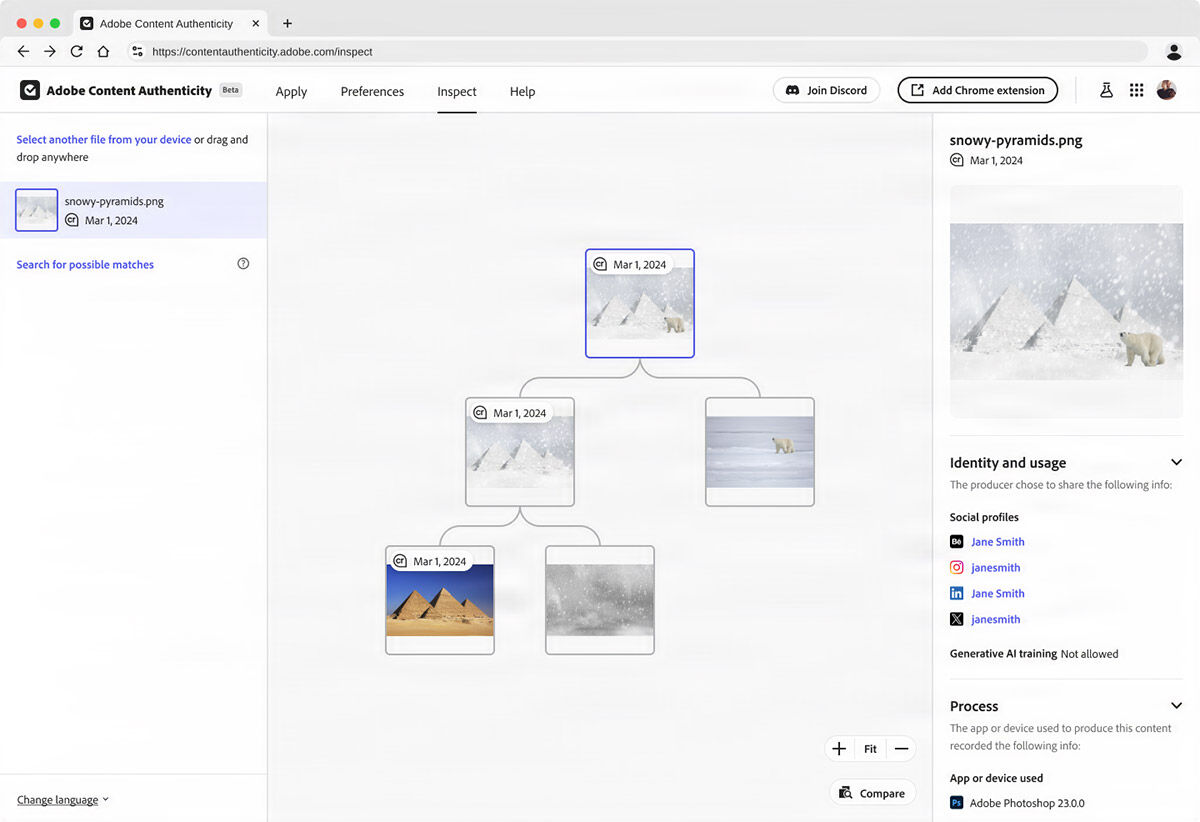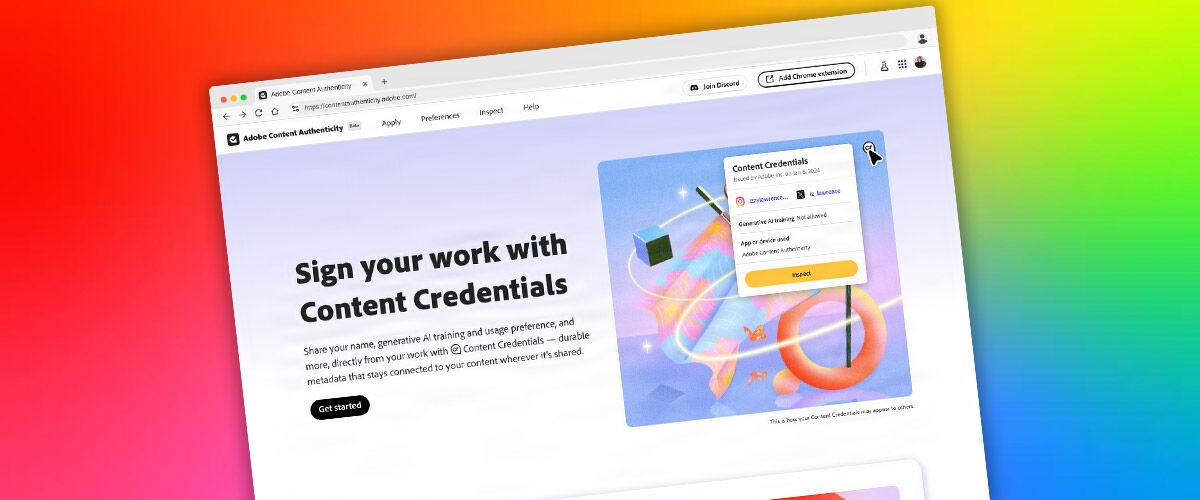With the advancement in AI-generated content over the last couple of years, there is a growing concern over misinformation and AI-generated deepfakes, so there is a need to help protect and attribute creators’ works. Since founding the Content Authenticity Initiative in 2019, Adobe has championed the widespread adoption of Content Credentials as the industry standard for transparency in digital content, currently supported by over 3,700 members.
Now, with Adobe’s newly announced free Adobe Content Authenticity web app, it bringing the full potential of Content Credentials, beyond Adobe’s own apps, for all creators to use, and to protect their work from misuse or misrepresentation.

“Adobe is committed to responsible innovation centered on the needs and interests of creators. Adobe Content Authenticity is a powerful new web application that helps creators protect and get recognition for their work. By offering creators a simple, free and easy way to attach Content Credentials to what they create, we are helping them preserve the integrity of their work, while enabling a new era of transparency and trust online. The Adobe Content Authenticity web app will not only benefit creators but also help consumers navigate the digital ecosystem with greater clarity,” shares Scott Belsky, Chief Strategy Officer and Executive Vice President, Design & Emerging Products at Adobe.
According to Adobe, the web app was developed in close collaboration with creators, incorporating their feedback at every stage, through one-on-one listening sessions, group discussions, user experience testing and more, to ensure it is truly built by and for creators.
Content Credentials are already supported in popular Adobe Creative Cloud apps such as Photoshop, Lightroom and Firefly. The web app will eventually integrate with these Creative Cloud apps and others, serving as a centralized hub for managing Content Credentials preferences. Here’s a quick look at the key features of the web app:
- Easily Apply Content Credentials: Creators can easily apply Content Credentials in batch to digitally sign their work, across images, audio and video files. For a start, creators will be able to attribute their website and social media accounts. Name attribution and other options will be added in future.
- Set Generative AI Training and Usage Preference: Creators can use Content Credentials to signal if they do not want their content used by or to train other generative AI models on the market.
- View and Inspect Content Credentials Easily: Adobe will release a Content Authenticity extension for Google Chrome and the Inspect tool within the web app will help to recover and display any Content Credentials associated with the content, including edit history when available.
- Durable Content Credentials: Content Credentials applied with the web app stay securely connected to the creator’s work throughout the content lifecycle and can be recovered even if the provenance information is removed or when someone takes a screenshot of the content. This is possible through the combined use of digital fingerprinting, invisible watermarking and cryptographically signed metadata, helping to ensure that Content Credentials remain intact and verifiable across the digital ecosystem.

The free public beta of the Adobe Content Authenticity web app will be available in Q1 2025. Creators can join the waitlist now and be notified when the beta is available. A free beta of the Content Authenticity extension for Google Chrome web browser is out now.
Adobe will also preview the web app at its booth (#424) at this year’s Adobe MAX, happening from 14 to 16 October in Miami Beach, Florida.












